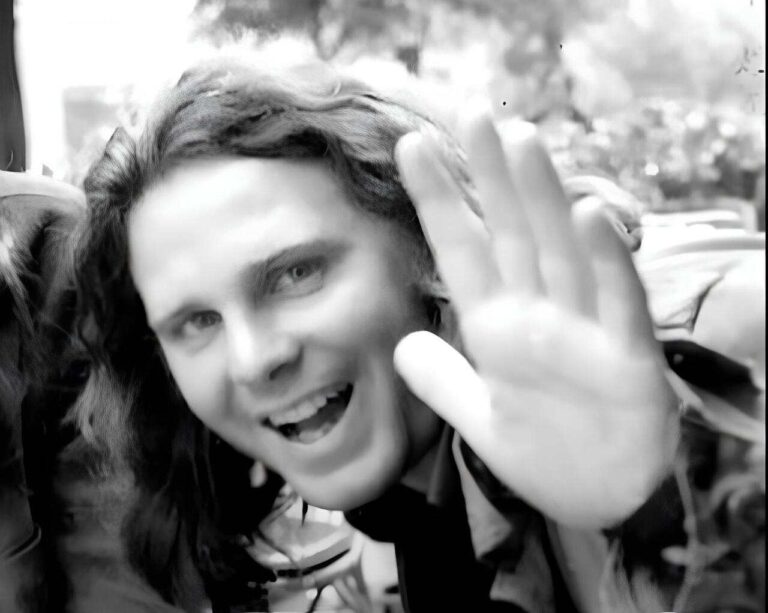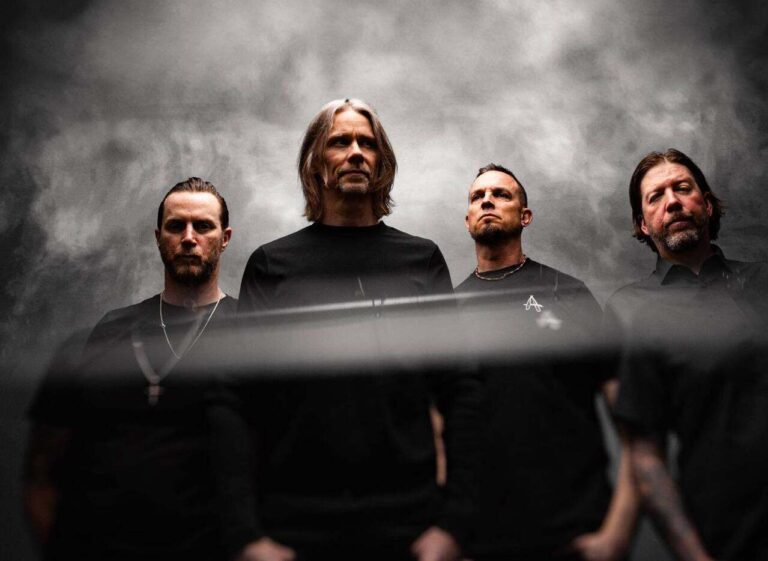In tour con Marc Turiaux: RPWL on stage in giro per il mondo
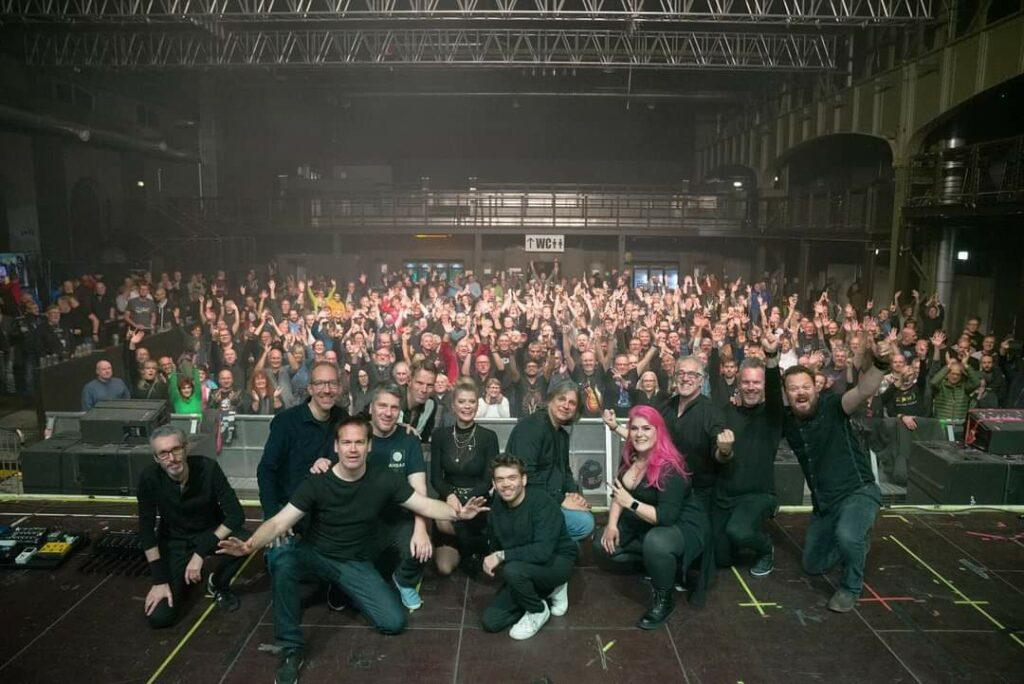
Il tour è il punto forte di qualsiasi band in circolazione, almeno questa è l’opinione di Marc Turiaux, batterista degli RPWL.
In concomitanza con la re-release dell’album Beyond Man and Time, la band germanica ha tenuto in minitour europeo che ha riscosso grandissimi consensi e che è terminato pochissimi giorni fa. Da qui probabilmente l’argomento di questo nuovo articolo a cura del bravo musicista.
Vita in tour: il punto forte di ogni band
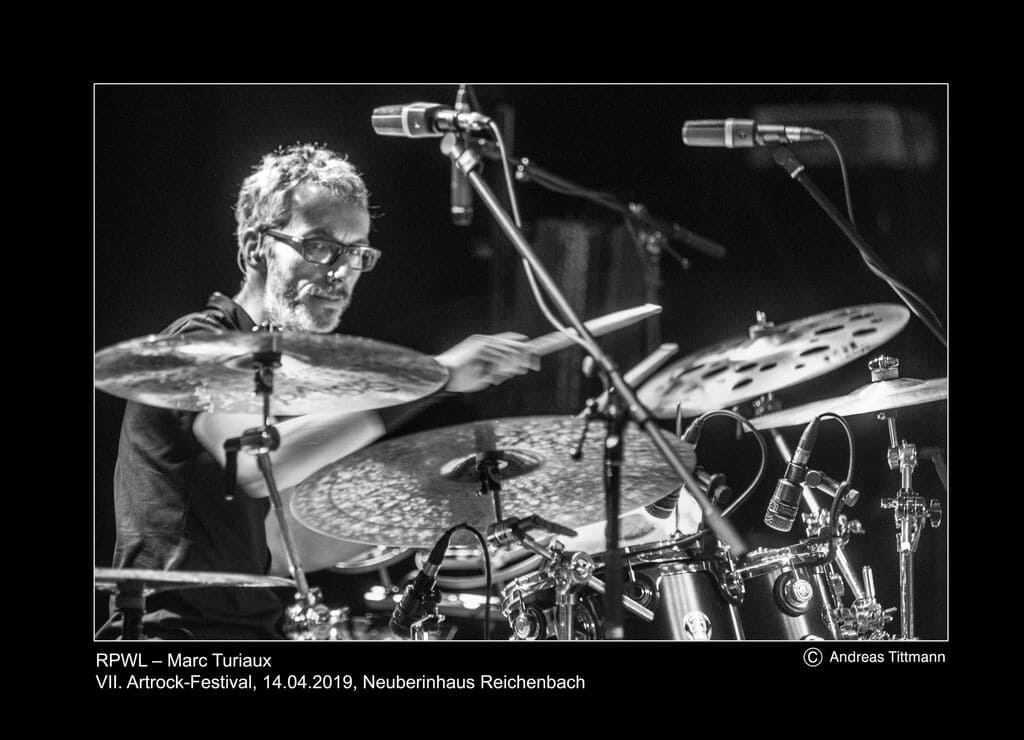
“Ho sempre amato i Rush. Li ho scoperti da teenager e, come molti altri musicisti e specialmente batteristi, sono stato affascinato dalla complessità e dalla potenza delle loro canzoni. I Rush sono l’unica band della quale potrei dire di essere un vero fans. Con tutti i comportamenti strampalati di ogni fan giovanissimo che si rispetti. E’ stato girato un documentario molto interessante su questa band, Beyond The Lighted Stage, del 2010. Se non lo avete ancora visto fatelo, per favore. E’ grandioso (ok, sono un fan perciò sapete cosa aspettarvi da te!). C’è una scena inclusa nel materiale bonus dove la band si trova a cena e dove, tra le altre cose, discute dell’idea di partire di nuovo in tour. E qui Geddy Lee, vocalist e bassista, a questo riguardo dice: “non ci sono quasi più considerazioni pratiche da fare”. Quella frase mi è rimasta impressa. Penso che rappresenti il massimo del successo che una band possa ottenere”.
Un motivo per andare in tour
“Molte delle restrizioni che appartenevano al music business praticamente non si applicano più. Se loro vogliono andare in tour non hanno bisogno di avere una ragione per farlo, un nuovo album, nuove canzoni e via dicendo. Loro non devono che annunciare i nuovi spettacoli e la gente verrà ad assistere. Che sogno! Per noi comuni mortali le cose sono un po’ differenti. Prima di tutto esibirsi davanti ad un audience con tutta l’adrenalina, la concentrazione e l’energia tra la band e gli spettatori è il motivo per cui molti di noi all’inizio hanno preso in mano uno strumento. Così fare un tour o in generale suonare dal vivo, è uno degli aspetti più positivi di questo lavoro”.
Tour tra arte e business

“Ma c’è anche un lato che ha a che fare con il business. Un tour significa uno sforzo enorme specialmente se non sei una di quelle band di grandissimo successo che possono affidare tutta l’organizzazione e la logistica al proprio management o alla booking agency. Un grandissimo numero di band non gode di questi benefit così i vari membri devono dividersi i compiti ed organizzare tutto da soli. Andare in tour è un potente mezzo di marketing per qualunque artista. Ti esponi, la gente legge il tuo nome sui giornali locali o nelle homepage dei club dove suoni. Fans e giornalisti scrivono dei tuoi shows…Questo genera anche quintali di contenuti per i social media. Ma c’è molta competizione sulla scena musicale per conquistarsi l’attenzione dell’audience. La gente sceglierà con cura quale band andare a vedere e per quale artista vale la pena di spendere i propri soldi acquistando i biglietti. Così io ritengo che la maggior parte delle band abbia bisogno di una ragione per andare in tour. Qualcosa che vuoi pubblicizzare e verso cui vuoi calamitare l’attenzione dei fans. Ovviamente eccetto band come i Rush. Per quelli, vi prego di riferirvi alle parole di Mr Lee”.
Nuova musica live
“La migliore ragione è sempre la nuova musica. Così usualmente le band cercano di sincronizzare l’uscita di un nuovo disco con un relativo tour. Dal momento che la maggior parte dei locali prenota gli spettacoli con mesi di anticipo, un gruppo dovrà spesso cominciare a prenotarsi il tour prima che l’album sia finito. E qualche volta anche prima che venga registrato. L’alternativa sarebbe terminare l’album e aspettare di pubblicarlo fino a qualche settimana prima che il tour inizi. E’ importante capire che capitalizzare sull’attenzione che un artista otterrà per la sua nuova musica, è vitale per vendere i biglietti delle varie date. Andare in tour comporta anche molti rischi finanziari. I costi devono essere coperti, a prescindere da quante persone verranno a vedere lo show ogni sera. Tourbus e hotel devono essere prenotati. Gli ingegneri del suoni e delle luci e la crew devono essere ingaggiati e pagati, la merchandise deve essere manufatta. Oltretutto molti di questi costi arrivano prima che il primo show vada in scena o che la prima copia dell’album sia venduta o scaricata in streaming”.
La tempistica chiave del successo di un tour
“Organizzare tutto ciò in tempo significa fare un lavoro enorme. Coinvolge anche investimenti che (si spera) saranno ripagati dopo il tour. Fare tutto in tempo è il fattore chiave per il successo. Si tratta di registrare, prenotare, far girare materiale promozionale per la stampa. Ma anche produrre video e organizzare tutta la logistica. Tutto deve funzionare simultaneamente e senza sbavature. E non abbiamo toccato ancora il lato musicale delle cose!
Naturalmente hai bisogno di essere preparato come band. Questo significa lavorare sodo sulla setlist, arrangiare i brani per il rendimento live. Quindi produrre uno show (se è qualcosa di appropriato per la tua band), studiare le luci e l’aspetto visuale, fare le prove…”.
Finalmente on stage
“Se hai un management che organizza il tour sei fortunato. Ma sei fai parte di una band che non ha un successo così globale, è probabile che dovrai finire a farti le cose da solo. Molti dei musicisti che conosco non vedono l’ora che un tour finalmente cominci. Questo perché una volta che tutti i preparativi sono stati fatti, a quel punto possono salire sul tour bus e finalmente essere di nuovo dei musicisti”.
Touring is essential for a band
I’ve always loved the band Rush. I discovered them in my teenage years and, like so many other musicians and especially drummers, I was fascinated by the complex, yet song-orientated and powerful music. It’s the only band that I would say I’m true a fan of – with all the fanboy geekiness that includes. There is a very entertaining documentary about the band, “Beyond the Lighted Stage” from 2010. If you haven’t seen it, please do, it’s just great (well, but I’m a fan, so don’t take my word for it). There is a scene in the bonus material where the band has dinner and, among other things, discusses the idea of going on tour again. And here Geddy Lee, the band’s vocalist and bass player, claims that for them in order to go on tour “there are almost no practical considerations anymore”. That sentence has stuck with me. I feel that is the ultimate success you can reach as a band.
A good reason to go on tour
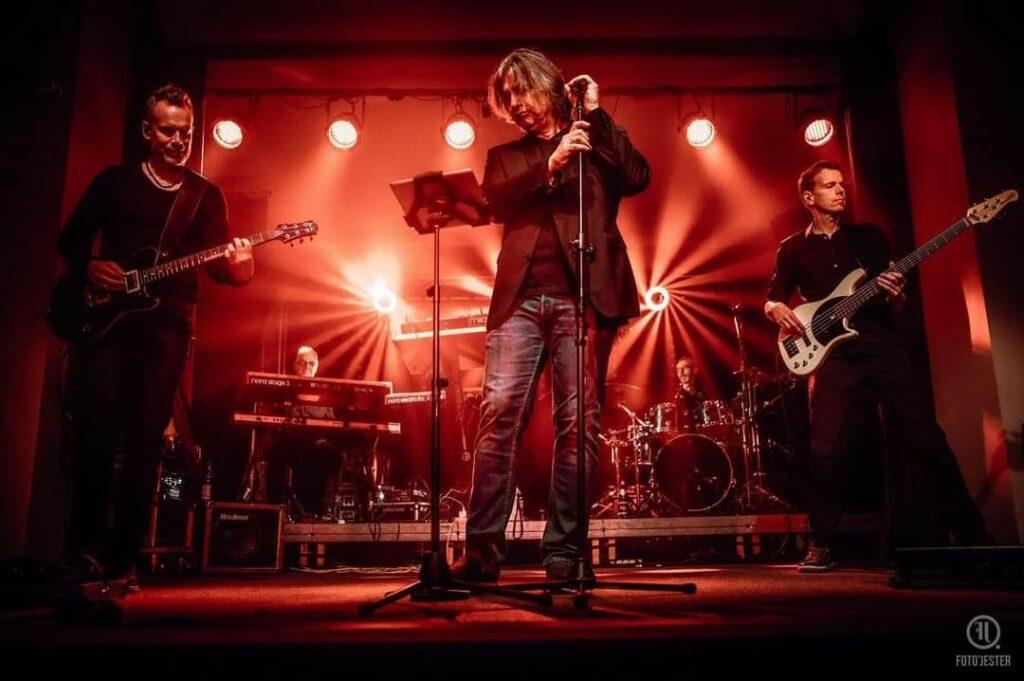
I’ve always loved the band Rush. I discovered them in my teenage years and, like so many other musicians and especially drummers, I was fascinated by the complex, yet song-orientated and powerful music. It’s the only band that I would say I’m true a fan of – with all the fanboy geekiness that includes. There is a very entertaining documentary about the band, “Beyond the Lighted Stage” from 2010. If you haven’t seen it, please do, it’s just great (well, but I’m a fan, so don’t take my word for it). There is a scene in the bonus material where the band has dinner and, among other things, discusses the idea of going on tour again. And here Geddy Lee, the band’s vocalist and bass player, claims that for them in order to go on tour “there are almost no practical considerations anymore”. That sentence has stuck with me. I feel that is the ultimate success you can reach as a band.
Between art and business
Many of the restrictions of the music business just don’t apply anymore. If they want to go on tour, they don’t need a reason, a new album, new songs, etc. – they just announce the shows and people will come. What a dream!
For us lesser mortals, things are a bit different. First of all: Performing in front of an audience with all the adrenaline, the concentration and the energy between band and listeners is why most of us picked up an instrument in the first place. So touring or playing live in general is one of the upsides of this job. But there is also a business side to it. A tour is a huge endeavour, especially if you are not one of the very successful bands that can outsource all the organization and logistics to their management or booking agency. A huge number of bands doesn’t have that benefit, so the members have to share duties and organize everything by themselves.
Touring is a powerful tool
Touring is a very powerful marketing tool for any artist. You’ll get exposure, people will read your name in local magazines or on the venues’ homepages. Fans and journalists will write about the shows, etc. It will also generate tons of social media content. But there is much competition in the music scene for the audience’s attention and people will chose carefully which band to see and for which artist to spend money to buy tickets. So in my opinion most bands (with the exception of bands like Rush, please refer to Mr. Lee’s statement) need a reason to tour; something you want to market and get the fans interested in.
New live music
The best reason is always new music, so usually bands will try to synchronize the release of a new album with the ensuing tour. Since most venues book shows months in advance, a band will often have to start booking the tour before the album is finished, sometimes even before it is recorded. The alternative would be to finish the album and hold back the release until a few weeks before the tour begins. One has to understand that capitalizing on the attention an artist will get for putting out new music to sell tickets for a tour is vital. Touring involves too many financial risks. The costs have to be covered, regardless of how many people come to see the show each night: tour bus and hotels have to be rented, sound and light engineers and crew have to be hired and paid, merchandize to be manufactured, etc. And many of these costs come up before the first show is played or he first album sold or streamed. Organising all of this in time is a ton of work and involves investments that will (hopefully) pay off after the tour.
Timing is the key factor for a tour
Timing all the necessary parts is a key factor for success: recording,
booking, sending out press and promotional material, producing videos, organizing all the logistics, etc. – everything needs to work together seamlessly. And we haven’t touched on the music side of things yet! Of course you also need to be prepared as a band. That means working out a setlist, arranging songs for live renditions,
producing a show (if that is appropriate for your band), designing lights and visuals, rehearsing, etc.
If you have a management to organize the tour you’re lucky. But if you’re not in a band that has widespread success, you’re likely to end up doing it by yourself. Many of the musicians I know can’t wait until a tour finally begins – because once all the preparation is done, they get into the band bus and can just be musicians again.




